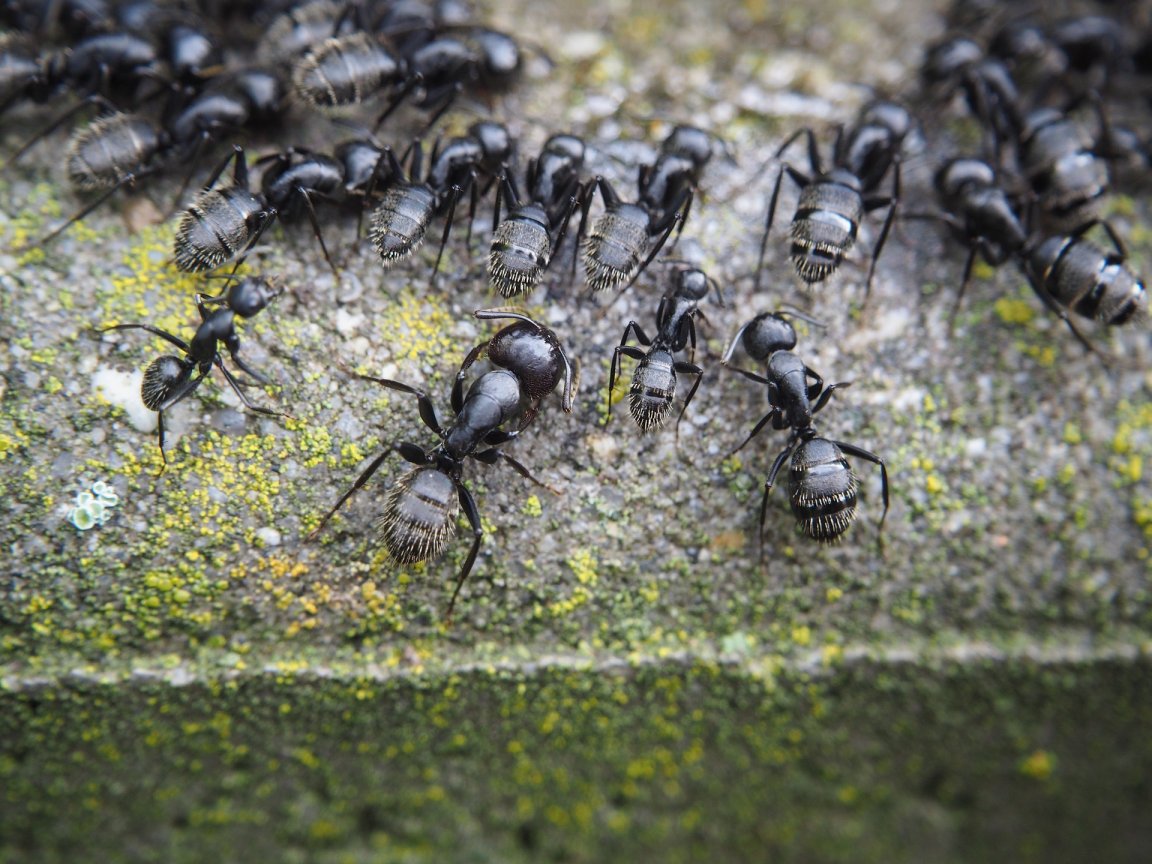
Ants Marching
Researchers have used the CRISPR technique to manipulate the social activities of ants for a study that will be published in Cell. Two independent teams knocked out the orco (odorant receptor coreceptor) gene in entire colonies of ants, which negated their ability to perceive pheromone signals they use to communicate. Without those cues, they began to exhibit asocial behaviors like leaving the safety of the nest and declining to aid efforts to hunt for food.
Ants possess a whopping 350 genes for odorant receptors, but as they all need to liaise with the orco gene to be effective, they could all be knocked out at once. The two teams chose different ants based on two distinct strategies for proliferating this edit among the colony.
One group chose a species that has no queens, instead procreating using unfertilized eggs that mature as clones, producing ants that are genetically identical. CRISPR was used to edit lone eggs, which produced an entire colony with the desired modification.

Meanwhile, the other team of researchers selected a species known for an unusual trait that sees worker ants graduate to the role of egg-laying pseudoqueen in the event that the former queen dies. The chosen worker ant had its genetic makeup modified being converted into a pseudoqueen and prompted to spawn a new colony.
Superorganism Socialization
The social interactions of ants are fascinating because of the way a colony acts as a single entity. And as such, these amalgamate superorganisms can potentially tell us a lot about the way we humans interface with one another.
The researchers observed that disabling the orco gene resulted in certain substructures from the ants’ central processing centers going missing. These parts of the brain are essential to their olfactory communications, and it’s not known exactly why they disappeared. Symptomatically, this is analogous to a number of human mental disorders.
The hope is that further research into the biochemistry of ant colony behavior could reveal more about disorders that affect social communication, like depression or schizophrenia. If we can better understand this process as it occurs in an ant’s brain, and then that of the invisible hand moving the colony as superorganism, we might shine a light on how similar changes that affect mammals.